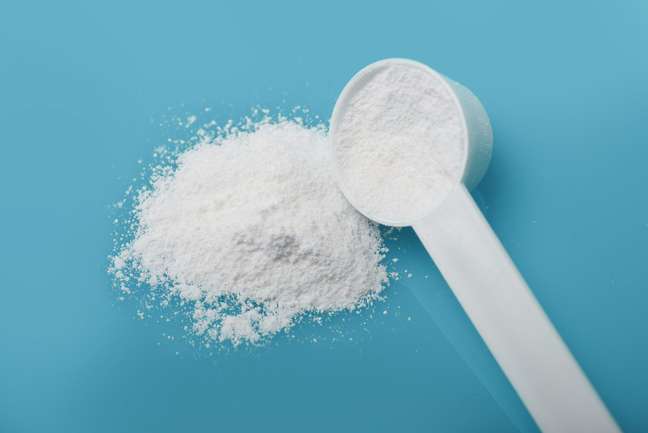The substance, natural in the body, can be integrated with the aim of improving muscle recovery and regulating the intestine.
There are many supplements on the market, and many of them promise to work wonders for gut health. One of the best known is L-glutamine, a very important amino acid for the body and produced in sufficient quantities by the body itself, but the need for supplementation is not uncommon. Do we understand better how it works?

WHAT IS L-GLUTAMINE?
“Glutamine is one of the most important amino acids for our body, as it can be used as a source of energy by various tissues, as well as helping to strengthen the intestinal wall, keeping the microbiota healthy”, explains the nutritionist. Dr. Marianna Magri.
The main functions of glutamine, according to the doctor, are related to toning the integrity of the intestinal mucosa, strengthening immunity and muscle recovery – therefore, by the way, it is also popular with people who work hard in the gym.
“Supplements are indicated when the patient has intestinal problems and muscle recovery,” he continues. “It is important to always consult with your doctor to follow the appropriate guidance for your body and needs.”
In fact, this supplement also works well in strengthening the immune system, in the barrier against diseases, reinforcing the antioxidant action and fighting fatigue.
WHAT IS THE FUNCTION OF GLUTAMINE IN THE INTESTINE?
One of the main points of this substance is related to intestinal health. It is not today that we talk about the importance of taking care of the intestine, stimulating the reproduction of good bacteria that work together for the health of the body and mind.
Glutamine is the main source of energy for the cells of the intestinal mucosa, so much so that it is considered a “virtual wall”, being responsible for up to 70% of the immune protection of the human body.
“Glutamine nourishes the cells of the small and large intestine, the enterocytes,” explains the doctor. “When healthy, these cells reduce intestinal permeability and make it difficult for pathogenic organisms such as viruses and bacteria to pass through.”
But care is needed. Although glutamine is the most abundant amino acid in the human body, supplementation has contraindications: diabetics should stay away from it, as their body behaves in an unusual way when metabolizing glutamine.
“If used, it must be monitored and / or approved by a doctor,” he says. “Anyone with kidney disease, liver disease, or a condition called Reye’s syndrome, which causes swelling of the brain and liver, should also avoid using glutamine.”
Source: Terra
Benjamin Smith is a fashion journalist and author at Gossipify, known for his coverage of the latest fashion trends and industry insights. He writes about clothing, shoes, accessories, and runway shows, providing in-depth analysis and unique perspectives. He’s respected for his ability to spot emerging designers and trends, and for providing practical fashion advice to readers.







